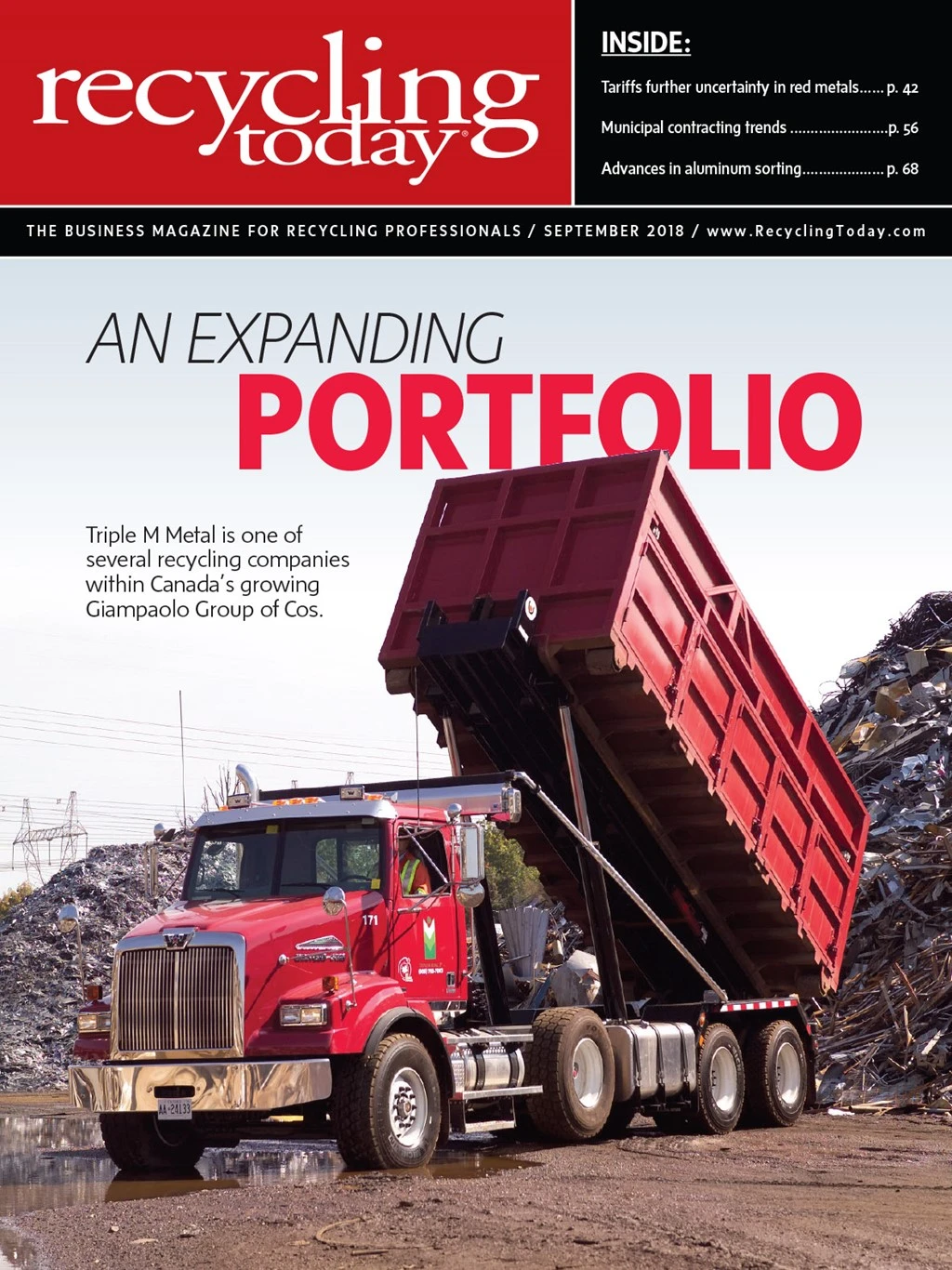China began imposing additional tariffs of 25 percent on scrap shipments from the U.S. as of Aug. 23. The tariffs affect ferrous scrap; nonferrous scrap, including copper, aluminum, nickel and zinc; and other scrap commodities. The move was in response to the U.S. introducing additional tariffs of 25 percent on $16 billion in Chinese goods. The U.S. tariffs also took effect Aug. 23.
These new tariffs add more uncertainty to nonferrous metals markets, which have been dealing with seismic shifts since 2017.
The Institute of Scrap Recycling Industries (ISRI), Washington, responded to news of these Chinese tariffs, saying that its contacts in China were reporting “consternation among Chinese consumers of U.S. scrap commodities.”

According to the statement from ISRI, “Although these tariffs will not be levied on imports from other countries, it is our understanding that other regions may not be able to fulfill all of China’s demand.”
According to ISRI’s “Nonferrous Beat” e-newsletter dated Aug. 16, “U.S. exports of nonferrous scrap metal have been adversely impacted by the full range of Chinese trade measures, including import tariffs, tighter ‘carried waste’ thresholds, restricted and inconsistent preshipment inspections and more.”
The association cites U.S. Census Bureau data that reveals U.S. exports of copper and copper alloy scrap to mainland declined by 40,000 metric tons in June 2018 compared with June 2017. “For the first six months of 2018, U.S. copper scrap exports to China declined 38 percent by volume year on year to just under 215,000 metric tons,” ISRI notes.
Aluminum scrap fared slightly better in the first half of 2018, with U.S. exports to China, declining 20 percent relative to the first half of 2017, according to ISRI.
In its statement regarding China’s late-August tariffs, the association concludes, “There is no doubt that these tariffs will impair the already diminishing scrap exports from the United States to China.”
“Volumes are lower than we want and have been for quite some time, but we are basically in balance and able to buy what we need to take care of customer demands.” – a red metals scrap processor based in the Northeast
Some buyers for Chinese companies acknowledge shifting to the European and Australian scrap markets. Veteran Hong Kong-based scrap trader Michael Lion of Everwell Resources Ltd. says this may not be a cure-all for China-based processors and scrap consumers because of environmental and quality issues.
A scrap processor based in the U.S. Midwest who deals primarily in red metals says his company has drastically reduced its shipments to China since 2017. He did have a couple of orders in transit, however, when China announced in early August that it would introduce the tariffs. While his orders were honored, he says it was “a slow-going process.”
Regarding generation, a processor in the Northeast who deals primarily in red metals says, “Actually and amazingly, things are extremely stable and well-balanced. Volumes are lower than we want and have been for quite some time, but we are basically in balance and able to buy what we need to take care of customer demands.”
Those customer demands are a bit softer as of mid-August, though the Northeast-based processor says that is typical, describing it as “the usual summer quiet period.”
Get curated news on YOUR industry.
Enter your email to receive our newsletters.
Explore the September 2018 Issue
Check out more from this issue and find your next story to read.
Latest from Recycling Today
- ReMA board to consider changes to residential dual-, single-stream MRF specifications
- Trump’s ‘liberation day’ results in retaliatory tariffs
- Commentary: Waste, CPG industries must lean into data to make sustainable packaging a reality
- DPI acquires Concept Plastics Co.
- Stadler develops second Republic Services Polymer Center
- Japanese scrap can feed its EAF sector, study finds
- IRG cancels plans for Pennsylvania PRF
- WIH Resource Group celebrates 20th anniversary





